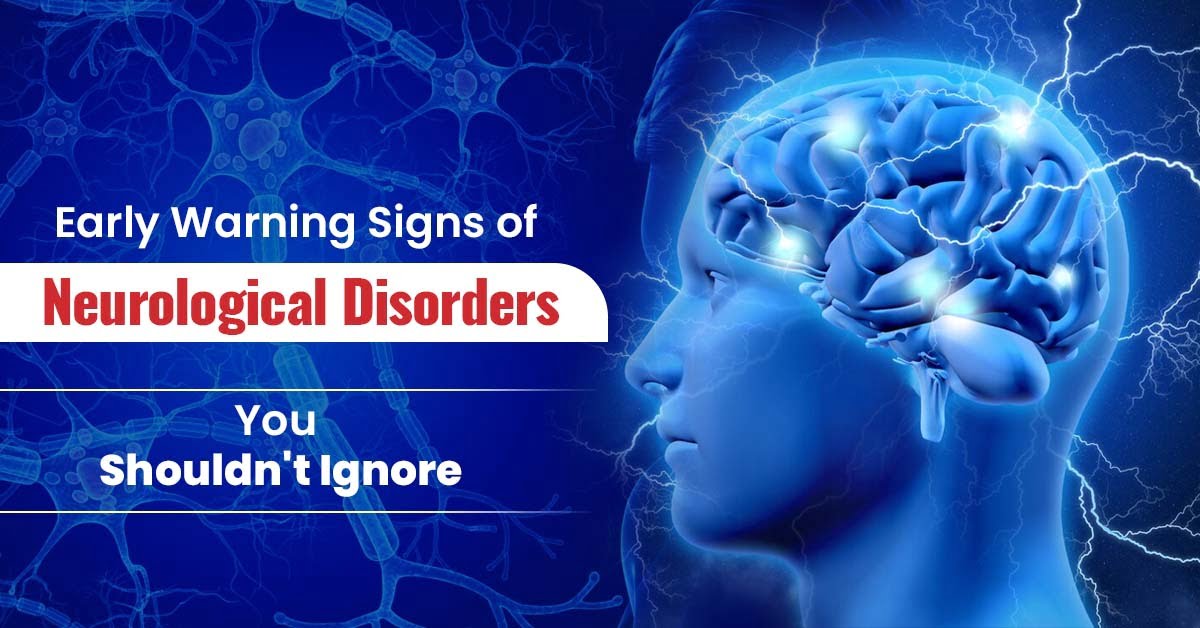


[vc_row][vc_column][vc_column_text]Neurological disorders symptoms are very subtle yet vital, which makes them tough to recognise. Ignoring these signals, however, sometimes results in treatment being put off and symptoms getting worse, which will lower the q uality of life overall. We’ll look at a few of the early warning signs of neurological problems in this article so that you can understand when to take action.
Medical definitions of neurological illnesses include conditions that impact not just the brain but also the spinal cord, nerves located all over the human body. A variety of symptoms may be brought on by structural, biochemical, or electrical anomalies in the brain, spinal cord, or other nerves.
Frequent headaches are normal and usually don’t even affect anyone, but severe or persistent headaches may indicate a developing neurological problem. The most common kinds of headaches associated with neurological disorders include tension headaches, cluster headaches, and migraines. Furthermore, it’s important to pay attention to headaches that are accompanied by additional symptoms like nausea, dizziness, or vision abnormalities.
It is important to treat any abrupt or mysterious changes in eyesight carefully. This involves having trouble focusing, double vision, tunnel vision, or blurry vision. These symptoms may be a part of several neurological conditions that impact the brain’s visual processing centres or optic nerves. So, it is better to get checked.
Nerve injury or malfunction may be indicated by the numbness or tingling feeling, commonly known as “pins and needles,” which can occur in various regions of the body. This symptom may be linked to diseases like multiple sclerosis, peripheral neuropathy, or spinal cord damage, especially if it worsens or continues.
In a neurological condition, one of the main symptoms is the weakness in the muscles that affect one or more limbs. Also, people face issues with balance or coordination. The main symptom of conditions including muscular dystrophy, Guillain-Barré syndrome, and stroke might be weakness in the muscles.
It is important to take memory loss, disorientation, trouble concentrating, and other cognitive problems seriously, especially if they become a major hurdle in your day-to-day tasks. These signs may be the first signs of neurodegenerative conditions such as vascular dementia, Parkinson’s disease, or Alzheimer’s disease.
Problems with the vestibular system or the brain’s motor control centres may be indicated by difficulty in keeping the body balance, stumbling often, or having trouble with coordination. These symptoms can be a sign of neurological disorders such as vestibular neuritis, brain tumours, or cerebellar ataxia.
Brain regions related to speech and language centres may be affected by neurological illnesses, as seen by slurred speech, difficulty pronouncing words, or difficulties interpreting language. These symptoms can be seen in conditions like apraxia of speech, dysarthria, or aphasia. Speech difficulty can have a direct link to neurological problems. It is better to get it diagnosed than considering it just a regular speech problem.
Unusual electrical discharges in the brain might result in tremors, unconsciousness, or strange feelings, which are known as seizures. While epilepsy is one disease in which seizures may occur, other neurological disorders or brain traumas may also cause seizures. Just like other neuro problems, seizures are not to be taken lightly.
How do you know if your nervous system is bad?
Our body shows some signs when it is not in good condition. It is up to us to recognise those symptoms and rush to the doctor for better treatment. The most common symptoms of neurological diseases are-
What are the main problems that can affect the nervous system?
Our nervous system can be affected by many diseases but, injuries to the spine or brain can make a big difference. Moreover, diseases like epilepsy or brain tumours have a great effect in weakening our nervous system.
How do you know if your nerves are weak?
Muscle weakness is the core symptom of knowing your nerves are not working perfectly. It is very important to maintain the health of your muscles for the smooth functioning of your body. As our sensory nerves perform various functions in the body, so harm to those muscles leads to quite serious injury.
What is the most common neurological disorder?
Among tons of neurological disorders, there are a few which can affect your health badly, like Stroke, Alzheimer’s and Epilepsy. Apart from these, the common neurological conditions are,
For neurological conditions to be properly managed, early identification and management are essential. Get medical attention right once if you or someone you know exhibits any of these warning indicators. Even while these symptoms don’t necessarily point to a major neurological issue, it’s still important to get a diagnosis and treatment as soon as possible because doing so may greatly enhance results and quality of life. Make sure to get advice from the experts of Amandeep Group of Hospitals for better assessment and treatment options.[/vc_column_text][/vc_column][/vc_row]
September 30, 2024
Recognize the Signs: Understanding Appendicitis Pain Symptoms
September 24, 2024
Unveiling the Truth: I-Pill Side Effects Every Woman Should Know
We use cookies to enhance your experience. By clicking "Accept", you agree to our use of cookies.